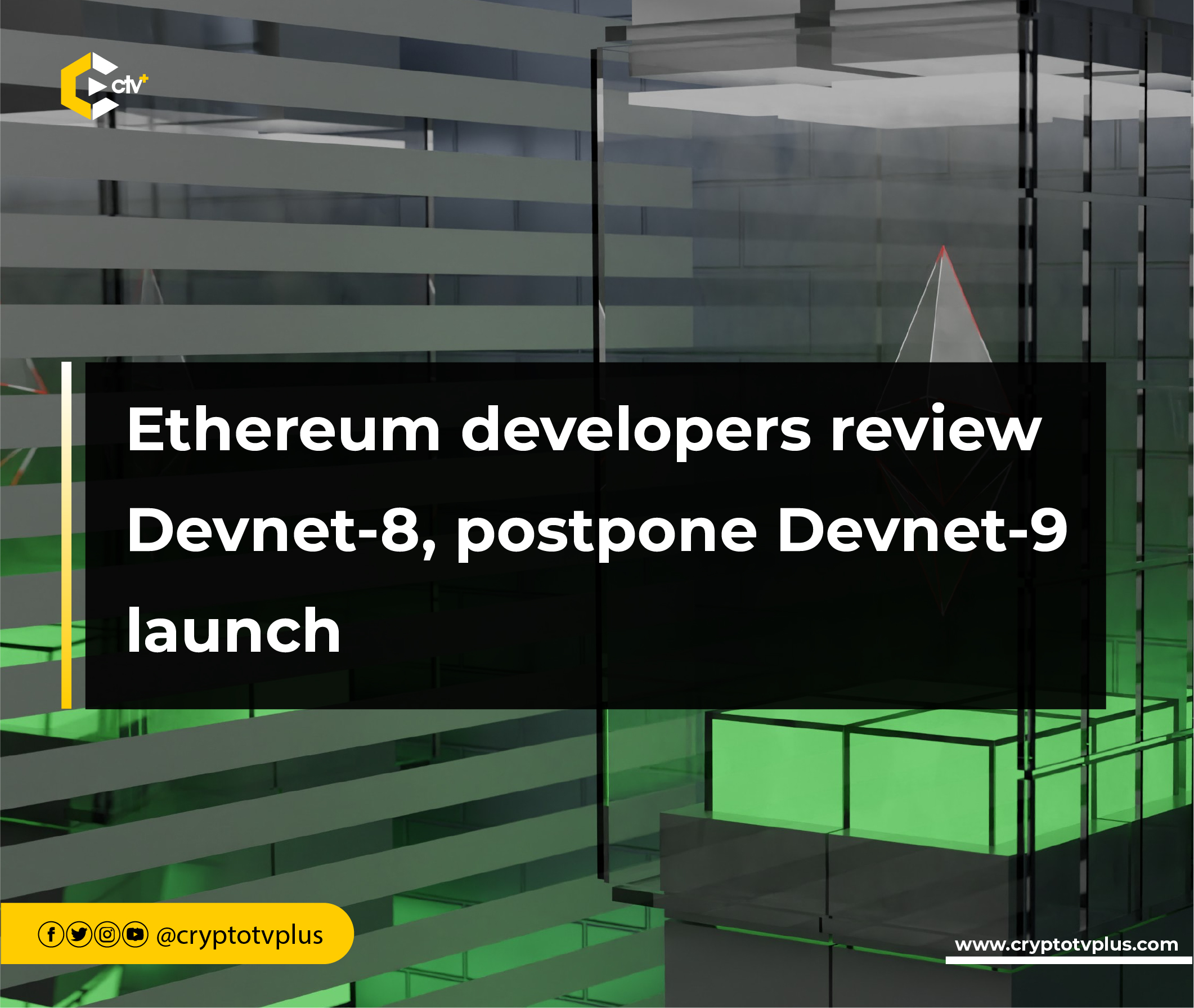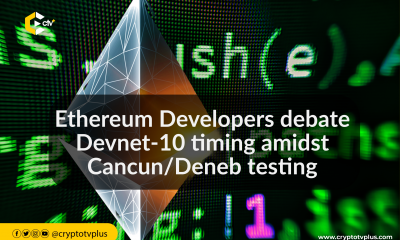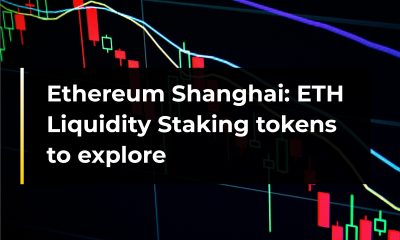News
Ethereum developers review Devnet-8, postpone Devnet-9 launch

In a recent Ethereum execution layer meeting, core developer Tim Beiko provided insights into the latest developments within the Ethereum ecosystem.
The meeting featured discussions on the status of Devnet-8 and the incorporation of Ethereum Improvement Proposal (EIP) 7514 as part of the Dencun upgrade, aimed at refining the Ethereum network.
Devnet-8 is the first dedicated testnet that includes all the finalized Ethereum Improvement Proposals (EIPs) for the Cancun/Deneb upgrade. This implies that Devnet-8 serves as a comprehensive testing environment for the upcoming upgrade.
In preparation for the upcoming Dencun upgrade, various updates have been released. Tim noted that “a few client teams including Prysm (CL), Besu (EL), and Nethermind (EL) had been pushing new updates for experimentation purposes to their software on Devnet-8.”
Each of these clients gave updates on their experience and how the upgrade will help make the blockchain better.
EIP-7514 in Dencun
In the course of the discussion, it was noted that regarding the introduction of a constant upper limit to the validator activation queue, resulting in the proposal known as EIP-7514.
EIP-7514 addresses the concern of exponential growth in the validator set by aiming to cap the maximum churn rate, reducing it from exponential to linear growth through the “Epoch Churn Limit.” The developers also noted that it will be part of the Dencun upgrade.
This proposal received widespread support during the meeting, as the initially suggested cap of 12 validator entries was reduced to 8 because of concerns around validator set size growth.
“I am in favor of doing this. I think there is a chance that the [validator] queue will stop being full at some point at the end of this year, if not at the start of next year or something,” Ethereum Foundation researcher Dankrad Feist said.
“But it’s a big gamble to bet on this. We’re not sure what’s going to happen, and I have a fear that we might get into a situation where we could have to make very drastic moves on staking.”
EIP-7516
During the discussion’s conclusion, EIP-7516 was discussed as a proposal aimed at introducing an opcode within the Ethereum Virtual Machine (EVM) to reveal the fundamental blob fee.
EIP-7516, similar in design and purpose to EIP-3198, specifically the BASEFEE opcode activated during the London upgrade of the Ethereum network.
EIP-3198 revolutionized Ethereum transaction pricing with an algorithmically determined “base fee,” shaping which transactions make it into the next block and introducing a fee-burning mechanism that’s consumed over 3.6 million ETH.
EIP-7516 aims to offer Layer-2 rollups real-time access to base fees for specific transaction types known as ‘blob transactions. Blobs, introduced via the Dencun upgrade, aim to cut the cost of posting rollup data to Ethereum.
Devnet-9 upgrade rescheduled and total EIPs for the Dencun upgrade
As the conversation concluded, the developers noted that due to the enhancements incorporated into the Dencun upgrade, the launch of the next Dencun testnet, Devnet-9, has been rescheduled for September 26, 2023.
Once Devnet-9 is successfully completed, developers are expected to proceed with the upgrade of public Ethereum testnets, including Holesky, Goerli, and Sepolia.
In summary, the Dencun upgrade encompasses several EIPs, including EL EIPs (EIP-1153, EIP-4788, EIP-5656, EIP-6780, and EIP-7516), CL EIPs (EIP-7044, EIP-7045, and EIP-7514), and EL/CL EIPs (EIP-4844).
Read also; New proposal, EIP-7281, targets Ethereum’s cross-bridge hacks


















